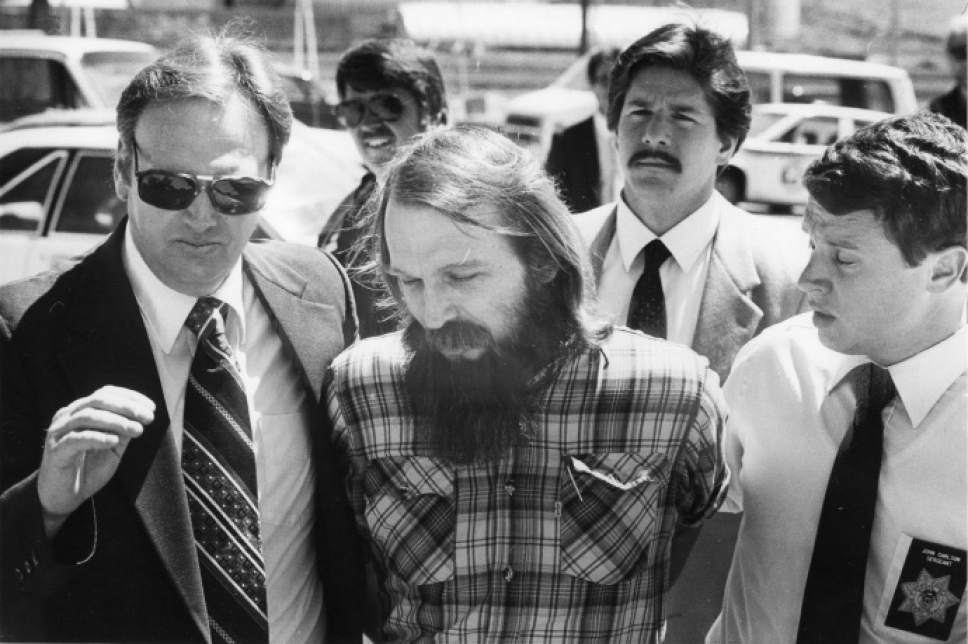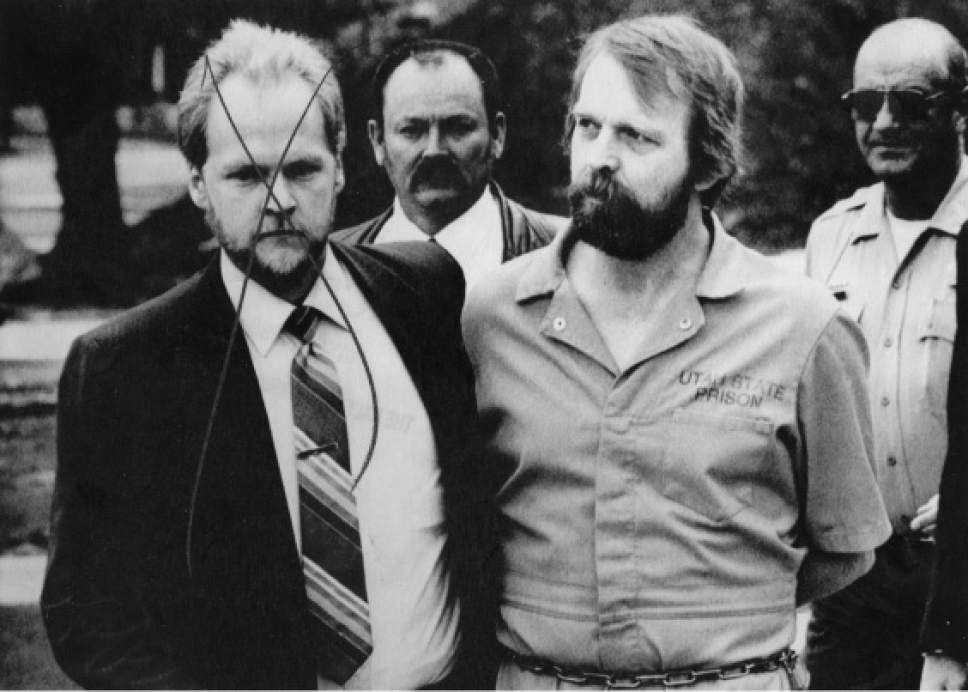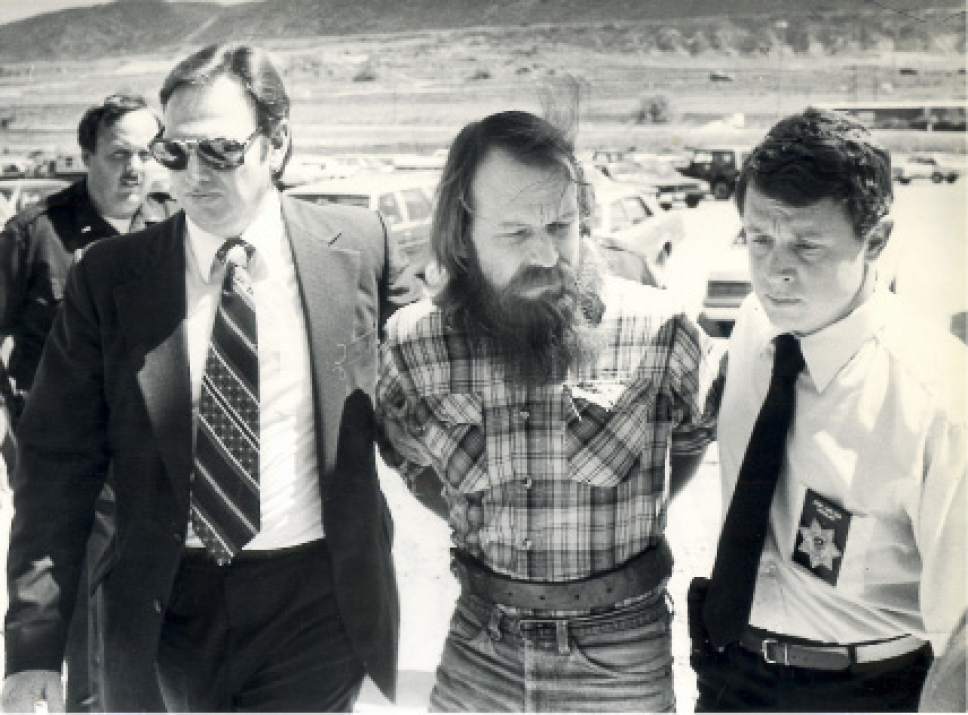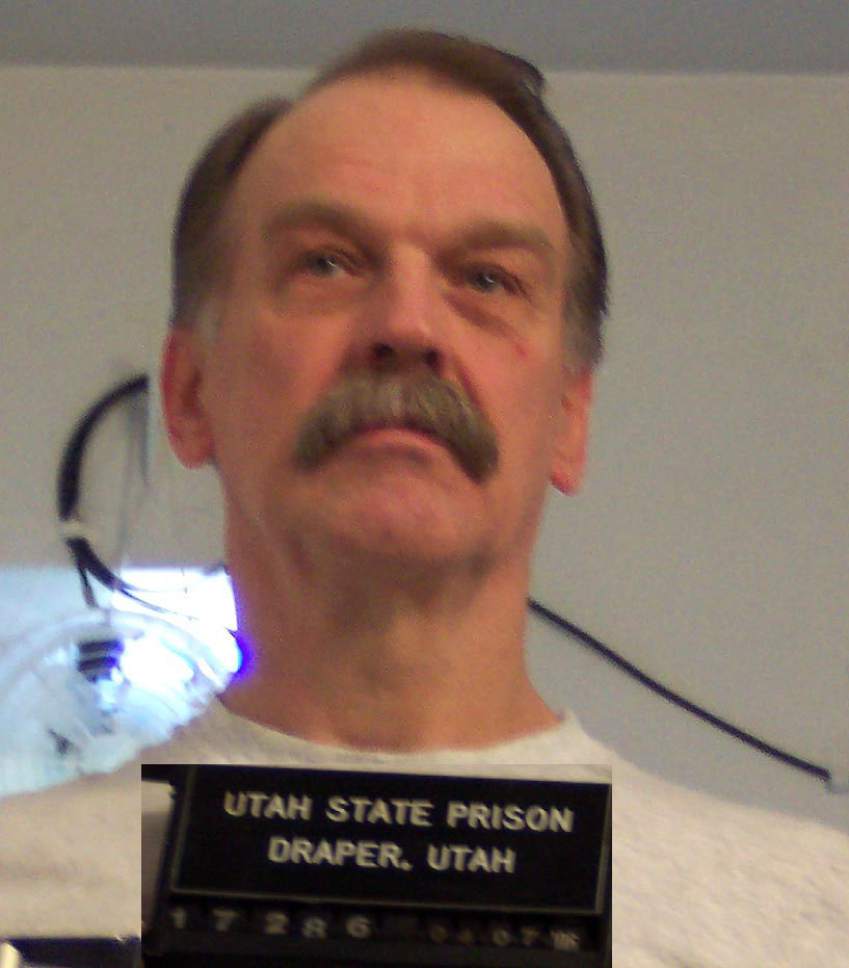This is an archived article that was published on sltrib.com in 2015, and information in the article may be outdated. It is provided only for personal research purposes and may not be reprinted.
Attorneys for condemned killer Ron Lafferty have filed an amended petition asking a federal judge to halt an appeal of his conviction so that he can take some of his legal claims back to state court.
Among the 74-year-old Lafferty's claims: That the state mishandled or destroyed parts of a bloodied kitchen drape which was used as evidence in the case, and that Utah's methods of execution — the firing squad and lethal injection — violate Eight Amendment protections against cruel and unusual punishment.
The July 10 petition was filed in response to a June order from U.S. District Judge Dee Benson that found some of Lafferty's grounds for appeal had not already been exhausted in the state courts. Benson's ruling came more than a year after Lafferty initially asked the federal court to stay the case.
Lafferty is on Utah's death row following a 1985 conviction for the murders of his sister-in-law Brenda Wright Lafferty and her 15-month-old daughter, Erica, in Utah County.
The 10th Circuit Court of Appeals later overturned the conviction and ordered a new trial after finding that the wrong standards had been used to evaluate Lafferty's mental competency. Lafferty was convicted and sentenced to death again for the murders in 1996.
According to trial testimony, Lafferty ordered the slayings after receiving a revelation from God. His brother, Dan Lafferty, carried out the 1984 murder by slashing their victims' throats with a 10-inch boning knife at their home in American Fork.
Dan Lafferty also was convicted of murder, but is serving a life sentence without the possibility of parole.
Federal court records show state attorneys have not yet filed a response to Ron Lafferty's newly amended petition. No hearing dates are set in the case and it is not clear how soon Benson might issue a ruling.
In court papers, his attorneys say Lafferty's right to due process was violated when the state, after the 1985 trial, failed to adequately preserve the condition of a blood-stained drape from Brenda Wright Lafferty's kitchen.
" … portions of the drape were removed and either lost or destroyed, and it was mishandled in a way that compromised its evidentiary value," court documents state. The filing also says the drape was for a time being stored in the office of an assistant attorney general working on the case, which compromised its integrity as evidence.
"This kind of forensic evidence is unique," court papers say. "Any change to the evidence will fundamentally alter it and its evidentiary value is lost forever," the document states.
Lafferty's attorneys also claim the state's available methods of execution will cause him "unnecessary pain, torture and lingering death," in violation of his constitutional rights — an argument his defense team failed to raise at the time of his second conviction.
They also contend Lafferty, who selected death by firing squad as state law allowed in 1996, was "incompetent to make a choice" at the time.
The petition further raises other claims, including issues of religious bias relating to the jury and the ineffective assistance of trial and post-conviction appeal attorneys who, among other things, failed to tell the courts that Lafferty wanted to represent himself.













